TOKYO - Japan’s longest-serving prime minister, Shinzo Abe, visited a Tokyo hospital on Monday, as concerns grew over his ability to continue in his post, because of health issues and fatigue from handling the coronavirus crisis.
If Abe is incapacitated, Deputy Prime Minister Taro Aso, who doubles as finance minister, would take over temporarily. If Abe resigned, he would stay on until formally replaced, which would require the ruling Liberal Democratic Party (LDP) to elect a new leader, who would then be formally elected in parliament.
ALSO READ: Govt: Japan PM Abe in hospital for follow-up examination
Here are details of some likely contenders to take the helm of the world’s third-largest economy.
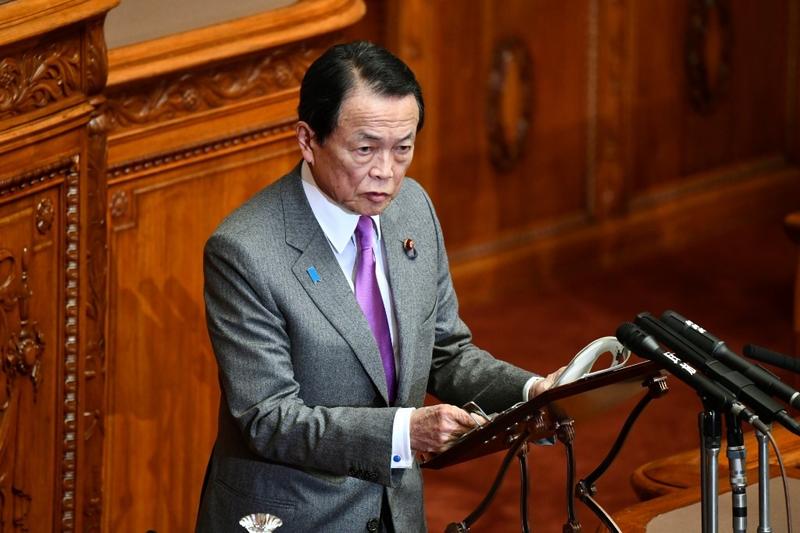 Japan's Finance Minister Taro Aso answers questios during a upper house plenary session at parliament in Tokyo on March 6, 2020. (KAZUHIRO NOGI / AFP)
Japan's Finance Minister Taro Aso answers questios during a upper house plenary session at parliament in Tokyo on March 6, 2020. (KAZUHIRO NOGI / AFP)
Taro Aso
Finance minister Aso, 79, who also doubles as deputy prime minister, has been a core member of Abe’s administration. Without a clear consensus on who should succeed Abe, LDP lawmakers could elect Aso as a temporary leader if Abe resigns.
In 2008, Aso was elected LDP leader and hence, premier, in hopes that he could revive the long-dominant party’s fortunes. Instead, the LDP was ousted in a historic election defeat in 2009, languishing in the opposition for the next three years.
The grandson of a former premier, Aso mixes policy experience with a fondness for manga comics and a tendency towards gaffes.
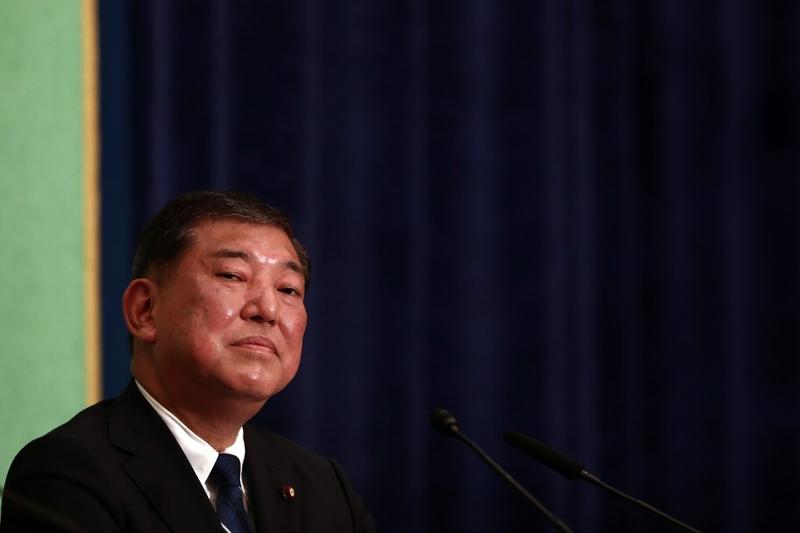 In this Sept 14, 2018 photo, Japan's former defence minister Shigeru Ishiba speaks during a debate for the Liberal Democratic Party presidential election with Prime Minister Shinzo Abe at Japan National Press Club in Tokyo. (BEHROUZ MEHRI / AFP)
In this Sept 14, 2018 photo, Japan's former defence minister Shigeru Ishiba speaks during a debate for the Liberal Democratic Party presidential election with Prime Minister Shinzo Abe at Japan National Press Club in Tokyo. (BEHROUZ MEHRI / AFP)
Shigeru Ishiba
A hawkish former defence minister and rare LDP critic of Abe, Ishiba, 63, regularly tops surveys of lawmakers whom voters want to see as the next premier, but is less popular with the party’s lawmakers.
The soft-spoken security maven has also held portfolios for agriculture and reviving local economies.
He defeated Abe in the first round of a party presidential election in 2012, thanks to strong grassroots support, but lost in the second round when only MPs could vote. Then, in a 2018 party leadership poll, Ishiba lost heavily to Abe.
He has criticised the Bank of Japan’s ultra-low interest rates for hurting regional banks and called for higher public works spending to remedy growing inequality.
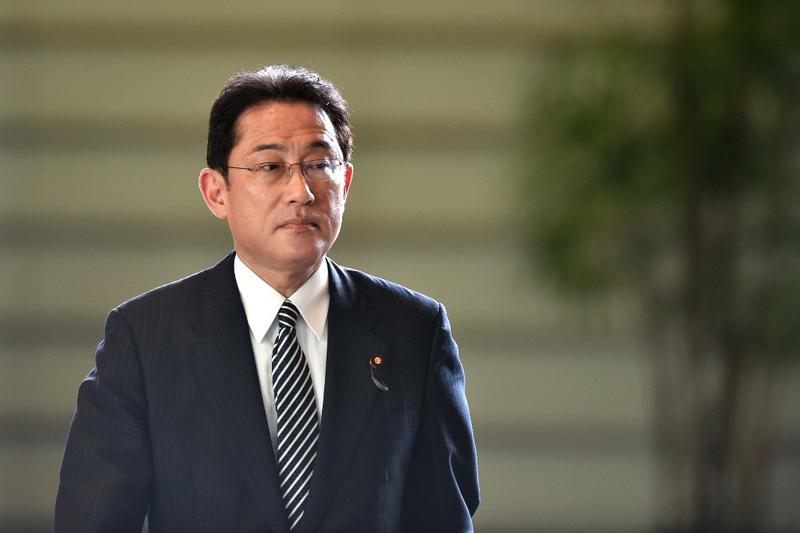 In this Aug 3, 2017 photo, Japan's Foreign Minister Fumio Kishida arrives at the prime minister's official residence to attend a cabinet meeting in Tokyo. (KAZUHIRO NOGI / AFP)
In this Aug 3, 2017 photo, Japan's Foreign Minister Fumio Kishida arrives at the prime minister's official residence to attend a cabinet meeting in Tokyo. (KAZUHIRO NOGI / AFP)
Fumio Kishida
Kishida, 63, served as foreign minister under Abe from 2012 to 2017, but diplomacy remained mainly in the prime minister’s grip.
The low-key lawmaker from Hiroshima has been widely seen as Abe’s preferred successor but ranks low in voter surveys.
Kishida hails from one of the party’s more dovish factions and is seen as less keen on revising the post-war constitution’s pacifist Article 9 than Abe, for whom it is a cherished goal.
The BOJ’s hyper-easy monetary policy “cannot go on forever,” Kishida has said.
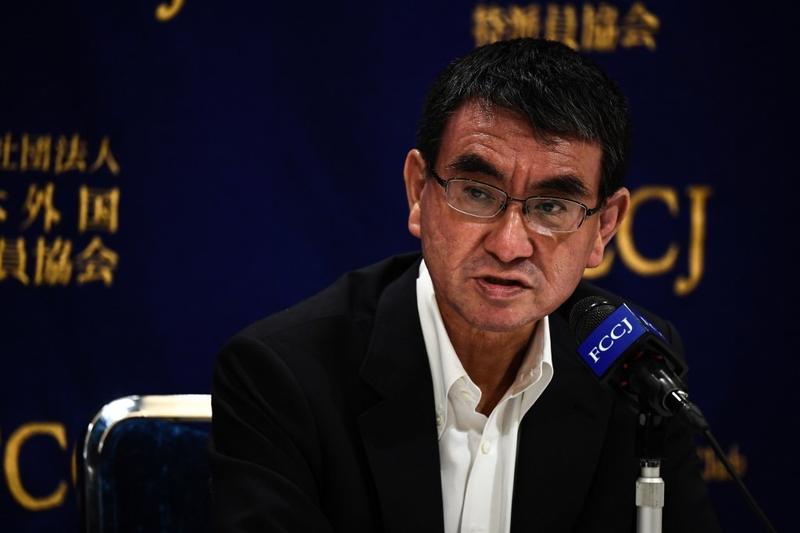 In this June 25, 2020 photo, Japan's Defence Minister Taro Kono speaks at a press conference at the Foreign Correspondents' Club of Japan (FCCJ) in Tokyo. (CHARLY TRIBALLEAU / AFP)
In this June 25, 2020 photo, Japan's Defence Minister Taro Kono speaks at a press conference at the Foreign Correspondents' Club of Japan (FCCJ) in Tokyo. (CHARLY TRIBALLEAU / AFP)
Taro Kono
Defence Minister Taro Kono, 56, has a reputation as a maverick but has toed the line on key Abe policies, including a stern stance in a feud with South Korea over wartime history.
Educated at Georgetown University and a fluent English speaker, he previously served as foreign minister and minister for administrative reform.
He has differentiated his conservative stances from those of his father, former chief cabinet secretary Yohei Kono, who authored a landmark 1993 apology to “comfort women”, a euphemism for women forced to work in Japan’s wartime military brothels.
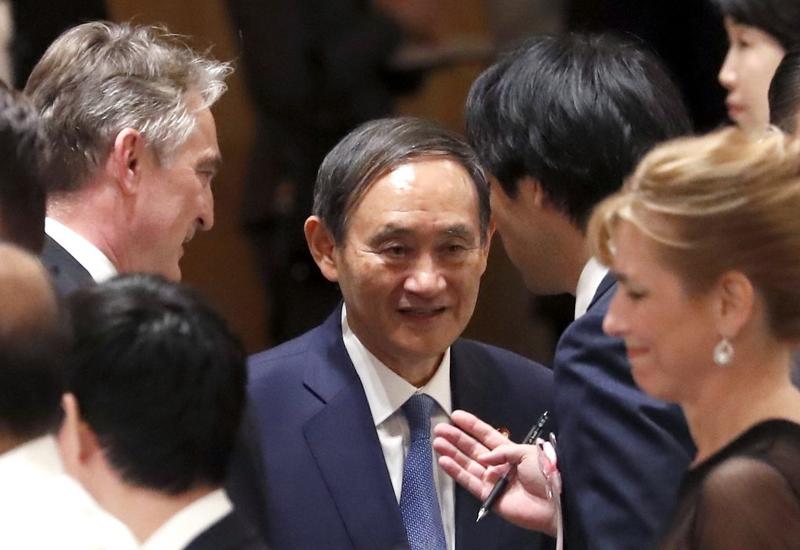 In this Oct 23, 2019 photo, Japan's Chief Cabinet Secretary Yoshihide Suga attends a banquet hosted by Japan's Prime Minister Shinzo Abe and his wife Akie Abe, for Japan's Emperor Naruhito at a hotel in Tokyo. (KIM HONG-JI / POOL / AFP)
In this Oct 23, 2019 photo, Japan's Chief Cabinet Secretary Yoshihide Suga attends a banquet hosted by Japan's Prime Minister Shinzo Abe and his wife Akie Abe, for Japan's Emperor Naruhito at a hotel in Tokyo. (KIM HONG-JI / POOL / AFP)
Yoshihide Suga
Suga, 71, a self-made politician and loyal lieutenant since Abe’s troubled term as premier in 2006 and 2007, was among a band of allies who pushed Abe to run again for the top post in 2012.
Back in office, Abe tapped Suga as chief cabinet secretary, acting as top government spokesman, coordinating policies and keeping bureaucrats in line.
Talk of Suga as a contender bubbled up in April 2019 after he unveiled the new imperial era name, “Reiwa”, for use on Japanese calendars after the enthronement of the new emperor.
Suga’s clout was dented somewhat by scandals that toppled two cabinet ministers close to him last October.
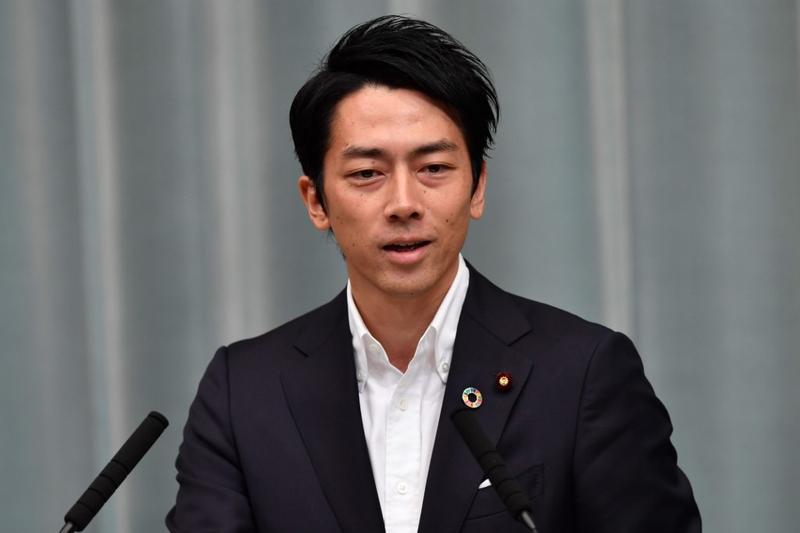 In this Sept 11, 2019 photo, newly appointed Japanese Environment Minister Shinjiro Koizumi speaks during a press conference at the prime minister's official residence in Tokyo. (TOSHIFUMI KITAMURA / AFP)
In this Sept 11, 2019 photo, newly appointed Japanese Environment Minister Shinjiro Koizumi speaks during a press conference at the prime minister's official residence in Tokyo. (TOSHIFUMI KITAMURA / AFP)
Shinjiro Koizumi
The name of Koizumi, 39, now environment minister and the son of charismatic former premier Junichiro Koizumi, is often floated as a future premier, but many consider him too young.
He shares some of Abe’s conservative views and has paid his respects at Tokyo’s controversial Yasukuni Shrine for war dead.
Koizumi has projected a reforming image on the basis of efforts to cut Japan’s backing for coal, the dirtiest fossil fuel, but has typically taken care not to offend party elders.
READ MORE: Abe to return to work after 3-day break marked by hospital visit
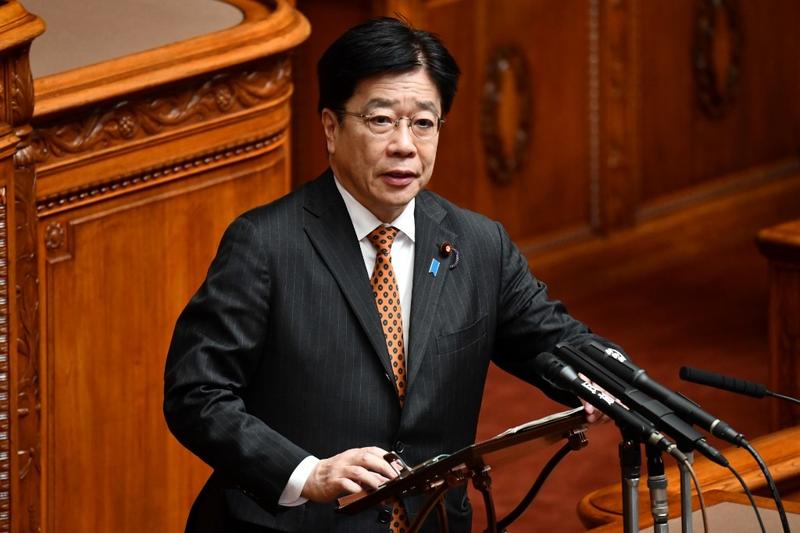 In this March 11, 2020 photo, Japan's Health Minister Katsunobu Kato speak during an upper house plenary session at parliament in Tokyo. (KAZUHIRO NOGI / AFP)
In this March 11, 2020 photo, Japan's Health Minister Katsunobu Kato speak during an upper house plenary session at parliament in Tokyo. (KAZUHIRO NOGI / AFP)
Katsunobu Kato, Yasutoshi Nishimura
As health minister, Kato, 64, was in the limelight in the early days of Japan’s coronavirus outbreak but then Economy Minister Yasutoshi Nishimura, 57, a former trade official, emerged as point person on virus policy.
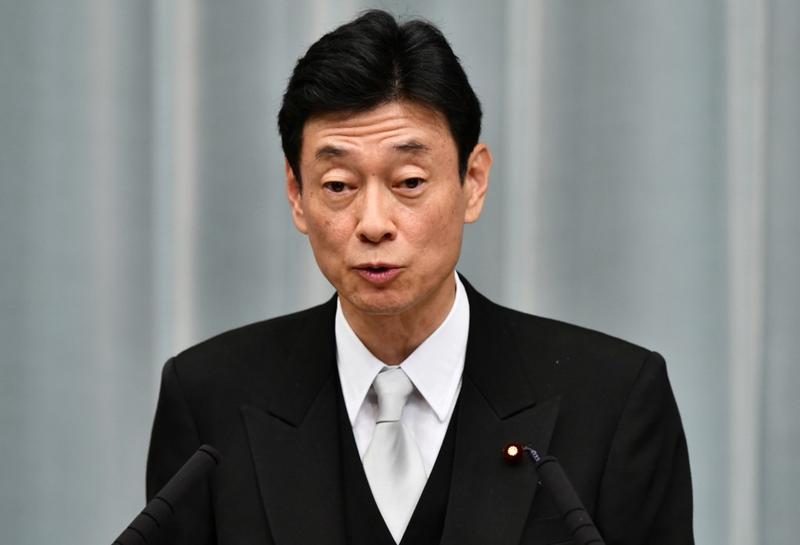 In this Sept 11, 2019 photo, newly appointed Japanese State Minister in charge of Economic Revitalisation Yasutoshi Nishimura, speaks during a press conference at the prime minister's official residence in Tokyo. (TOSHIFUMI KITAMURA / AFP)
In this Sept 11, 2019 photo, newly appointed Japanese State Minister in charge of Economic Revitalisation Yasutoshi Nishimura, speaks during a press conference at the prime minister's official residence in Tokyo. (TOSHIFUMI KITAMURA / AFP)
In 2015, Kato, a father of four, was handed the portfolio for boosting Japan’s rock-bottom birth rate, a task that met little success. He is a former official of the finance ministry.
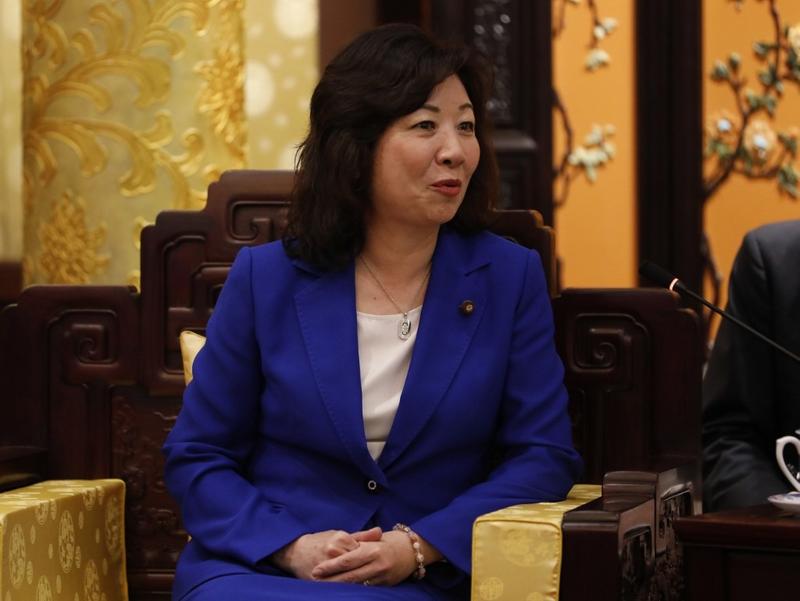 In this Aug 26, 2019 photo, Seiko Noda, team leader of the Japan-China Parliamentary Friendship Association, speaks to China's Foreign Minister Wang Yi (not pictured) during a visit to the Diaoyutai State Guesthouse in Beijing. (HOW HWEE YOUNG / POOL / AFP)
In this Aug 26, 2019 photo, Seiko Noda, team leader of the Japan-China Parliamentary Friendship Association, speaks to China's Foreign Minister Wang Yi (not pictured) during a visit to the Diaoyutai State Guesthouse in Beijing. (HOW HWEE YOUNG / POOL / AFP)
Seiko Noda
Noda, 59, has made no secret of her desire to become Japan’s first female premier. An Abe critic, the former internal affairs minister, who also held the portfolio for women’s empowerment, fell short of backing to join the race for party leader in 2018.


